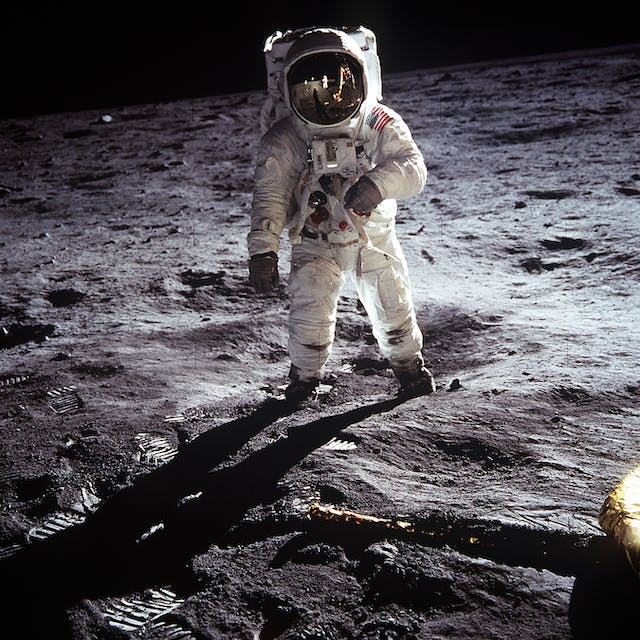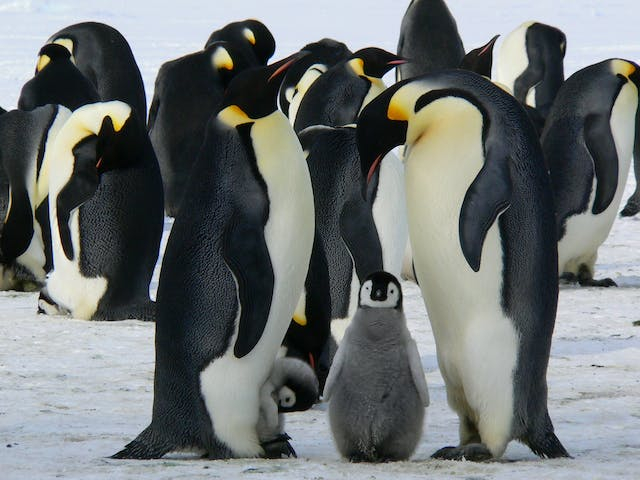Top 10 Expository Essay Topics on Science and Technology and Samples
Dive into the world of scientific exploration with Toplist curated Expository Essay Topics on Science and Technology. Uncover engaging subjects and explore ... read more...samples that illuminate the wonders of innovation, making your expository writing journey both enlightening and informative.
-
Essay topic: The Effects of Computers on the Environment and Human Life
Answer:
Konrad Zuse, a German inventor, crafted the first programmable computer in the 1930s. A computer is an electronic device that processes and stores data, affecting both the environment and human health. Global warming, computer addiction, and physical health problems are notable consequences.
Global warming, accelerated by the greenhouse effect, results from increased atmospheric CO2 concentration. Computer production, led by companies like Apple and Microsoft, contributes to this issue. The manufacturing process emits CO2, and the sheer volume of computers produced, approximately 37 million annually, intensifies the problem. Printing aggravates global warming through deforestation for paper and CO2 emissions from paper and ink production. Fossil fuels used in ink production, such as natural gas and oil, are irreplaceable.
Computer addiction, emerging from repetitive and stress-relieving computer use, isolates individuals and can lead to depression. Violent games may induce aggressive behavior, potentially causing cyberbullying. Education is also affected, with students neglecting studies for online activities.
Extended computer usage, exceeding 10 hours, leads to physical health problems. Prolonged sitting causes back and chest pain, and overuse contributes to headaches and eye strain. Vision-related issues include fatigue, blurred vision, and sore eyes.
Despite these drawbacks, computers offer positive impacts such as paper and ink conservation. To mitigate the environmental impact, eco-friendly computer production methods should be explored. Balancing the advantages and disadvantages, it is crucial to recognize the dual nature of computers in influencing both the environment and human lives.
Photo by Nina Uhlikova via pexels 
Photo by Helena Lopes via pexels -
Essay topic: Review of Noam Chomsky's ‘Who Rules the World?’
Answer:
Many American studies graduates, born during the September 11 attacks and raised amid the Iraq and Afghanistan wars, show a keen interest in understanding US international policy. They seek a deeper understanding beyond mainstream media portrayals. Noam Chomsky's essays in "Who Rules the World?" offer a unique perspective, addressing the ethical implications of American hard power and its role in global economic injustice.
Chomsky's influence extends from public discourse to student-led movements, making his voice heard on both sides of the Atlantic. Despite his global reputation, his written work rarely appears in international relations curricula. The essays in "Who Rules the World?" cover various issues related to American power, providing answers to critical questions about the motivations behind the exercise of state power.
Chomsky challenges the conventional view that states act primarily for security reasons. He argues that interventions, such as the 'war on terror,' have not made the world safer. Instead, he suggests that the primary motivation behind these actions is to influence nations for economic and military gain, expanding corporate interests.
Beyond international affairs, Chomsky explores the link between foreign policy and domestic governance. He contends that maintaining control abroad involves restricting democracy at home. Chomsky emphasizes the interconnected behavior of various government agencies, revealing how interventionist foreign policy can impact domestic practices, especially those affecting minority populations.
In "Who Rules the World?," Chomsky provides a broad overview of different international policy issues from a critical perspective. While his approach may not fit traditional curricula, his insights are relevant for American studies students, encouraging them to engage critically with both domestic and foreign facets of American power. Whether Chomsky deserves a place in international relations courses depends on the course objectives, but his views undoubtedly hold significance for those studying the multifaceted dimensions of American influence.
Photo by Keefe Tay via pexels 
Photo by Pixabay via pexels -
Essay topic: The Concept of Movement and Its Impact on the Modern World
Answer:
Aristotle said, "Life requires movement," and indeed, movement is inherent in our existence. It's not just about changing homes or countries; it can be as simple as shifting schools or classes. Movement has been a constant throughout history, from birds migrating for survival to humans relocating for resources, cultural exchange, and idea sharing.
Animals, too, engage in daily movement for survival, like Monarch Butterflies migrating to Mexico. Interestingly, their arrival coincides with Dia de los Muertos, unintentionally becoming a symbol for Hispanics, representing the souls of their departed loved ones. This unexpected cultural impact showcases the profound influence of movement.
In Africa, the movement of traders in the Aksum kingdom significantly transformed economies and introduced the Islamic religion. The trade routes paved the way for the spread of Islam, influencing African architecture and education. Mansa Musa, a wealthy ruler, used his resources to build mosques, schools, and a university, fostering knowledge and ideas.
Resource driven movement is exemplified by the American dream, where people sought a better life, job opportunities, and improved resources for their families. This movement shaped the diverse and vibrant America we know today.
In conclusion, movement is crucial as it spreads ideas, improves cultures, and fosters brave exploration. Whether global or domestic, movement shapes our experiences and perspectives. Reflecting on our own movements, we realize the value they bring, the changes, challenges, and opportunities that make the journey worthwhile. Movement is not merely a physical transition. It is a catalyst for growth and positive change.
Photo by Chris Schippers via pexels 
Photo by Ranjeet Chauhan via pexels -
Essay topic: Is the Internet a Boon or a Bane?
Answer:
The Internet, a global communication network, has transformed our lives, making them easier, more comfortable, and connected. It serves as a vast source of information, fostering knowledge and global connections. However, its impact depends on how it's used, offering both benefits and risks.
When used wisely, the Internet proves to be a boon. It provides endless information through search engines like Google and YouTube, aiding students in academics. Additionally, it ensures safety through GPS technology, supports businesses, and offers entertainment and online shopping. Video conferencing, especially during the pandemic, has facilitated connections, maintaining relationships and education.
On the flip side, the Internet, when misused, poses health hazards. It can be a source of distraction, leading to an unhealthy lifestyle and contributing to issues like obesity. Loneliness and depression may arise from excessive online interactions, distancing people from real communication. Cybercrimes, including identity theft, viruses, cyberbullying and the spread of false information, highlight the darker aspects of the Internet.
In conclusion, the Internet is a double edged sword, presenting both advantages and disadvantages. Its impact on individuals and society depends on how it is utilized. While it has become an integral part of our lives, caution and responsible use are essential to navigate the potential pitfalls. Parents play a vital role in guiding children to use the Internet wisely, ensuring a balance between the virtual and real worlds.
Photo by Danny Meneses via pexels 
Photo by Sharad Kachhi via pexels -
Essay topic: How Has the Internet Changed Our Lives?
Answer:
In the 21st century, the Internet has become an indispensable part of our lives, revolutionizing how we learn, connect, and conduct various activities. Online education is now easily accessible, enabling students to study from home with just an internet connection, mobile, and computer. The Internet's vast applications include emails, video conferences, social media, business transactions, healthcare, and more.
Robert E. Kahn and Vint Cerf invented the Internet in 1970 and Tim Berners Lee founded the World Wide Web (WWW) in 1989. It serves as an International Network connecting people globally. The Internet plays an integral role in our daily lives, offering numerous benefits and opportunities.
Online courses are a boon in today's fast paced world, providing flexibility for students, IT professionals working from home, and businesses conducting online conferences. The Internet facilitates virtual activities such as online shopping, banking, job searches and even job opportunities for the global market. It serves as a vast information source, with websites like Google and Yahoo providing details on various aspects of life.
While the Internet brings immense advantages, it also presents challenges. Misuse can lead to distractions, health issues and cybercrimes like identity theft. However, the positive impact is undeniable, making life easier with features like GPS technology, online shopping, and improved communication.
In conclusion, the Internet is a powerful tool that has transformed how we live, learn, and work. Its advantages, from online education to business transactions, are evident. However, responsible use is crucial to navigate potential pitfalls, ensuring the Internet remains a valuable resource for information and connectivity.
Photo by Monoar Rahman via pexels 
Photo by Nubia Navarro via pexels -
Essay topic: Should Money Be Spent on Space Exploration?
Answer:
Human needs such as food, shelter, and clothing are fundamental, yet many in developed countries face poverty. Despite this, significant funds are allocated to space exploration. It's like owning a deteriorating house but choosing to abandon it for a new one rather than addressing its crucial issues. The money spent on space exploration could be redirected to urgent problems like hunger, developing nations, healthcare, and environmental issues.
Billions are spent on space exploration, funds that could be used to combat hunger, diseases, and pollution. By focusing on education, fighting diseases, or addressing poverty, we could allocate resources and efforts more effectively. Education should be a priority to empower people and foster global development.
Exploring space can wait until we address our immediate challenges. Our planet is still largely unexplored, and rushing into space exploration neglects the potential advancements achievable by fully understanding and addressing our own world. If people had concentrated on their regions, they might have become highly advanced. Rushing into space exploration without fully exploring our planet seems premature.
There are many unresolved issues on Earth, such as AIDS, cancer, and poverty. Space exploration is costly, and we must prioritize solving problems on our planet before venturing into space. Unemployment concerns can be addressed by having more people focus on known issues rather than revealing new ones.
In conclusion, money is a tool that should be spent wisely. While spending on space exploration is not inherently wrong, it cannot overshadow the pressing issues on Earth. Governments must allocate funds to combat poverty, control diseases, provide meals to the needy, and invest in education to address the increasing challenges on our planet.
Photo by Pixabay via pexels 
Photo by SpaceX via pexels -
Essay topic: States of Consciousness: What Do Dogs Dream About?
Answer:
Dreams are subconscious imaginings projected with sounds, images, and sensations during sleep. While humans commonly experience dreams, dogs may also exhibit signs of dreaming, such as twitching legs or barking. Scientists believe there is evidence supporting the idea that dogs indeed dream. Stanley Coren, in Psychology Today, notes that dog brain structures are similar to humans, and their sleep patterns resemble ours. Although dogs cannot communicate their dreams, humans can infer their content based on observed behaviors.
Dogs, among the most intelligent animals globally, possess the ability to understand commands and learn new skills. Professor Stanley Coren highlights their linguistic capability, comparable to a two year old human. This linguistic intelligence aligns with their capacity to dream. During sleep, dogs exhibit brainwave patterns similar to humans, indicating comparable stages of electrical activity. This similarity suggests that dogs dream about their daily experiences and activities, much like humans. While dogs cannot verbally share their dreams, it is presumed that they replay everyday activities, such as chasing or playing.
Dreaming is not exclusive to dogs; other animals may experience it too. Birds and mammals, including rats, undergo REM sleep, a stage associated with dreaming. A study showed that rats exhibited similar brain patterns when running a maze and during REM sleep, implying they were dreaming about their maze experience. Although not all animals, such as insects and fish, experience REM sleep, there is a possibility that various animals share the capacity to dream.
In conclusion, dog ability to dream stems from their brain's structural similarity to humans. Their dreams likely involve replaying daily activities. This capacity extends to other mammals like rats and possibly other animals. Recognizing the dreaming potential in animals enhances our understanding of their cognitive processes.
Photo by Bruno Cervera via pexels 
Photo by Pixabay via pexels -
Essay topic: Do Animals Need to Be Clever to Be Social?
Answer:
Understanding the link between intelligence and social behavior (SB) in animals offers insights into the complexity of human sociality. Cleverness, defined as behavioral flexibility, adapts animal behavior to environmental challenges. This essay explores if social animals demand more cleverness than solitary ones, considering social pressures like cooperation, conflict, and communication. Social animals, facing unique challenges, may develop better learning capabilities than solitary counterparts.
Observing big cats, lions outperform other asocial carnivores in problem-solving, showcasing behavioral flexibility. Similarly, macaques adjust strategies based on social or independent play (Do Dogs Dream?, Phycology Today). Social animals might require cleverness for tasks like cooperative hunting and communication, different from the skills solitary animals need.
Group-level interactions highlight collective intelligence. Wolves seemingly complex hunting strategies may stem from simple decentralized rules. Collective intelligence is also seen in birds, ungulates, fish, dolphins, and ants. Animals balance personal and social information to reach collective decisions.
Examining brain size and sociality reveals complexities. Brain size doesn't necessarily correlate with intelligence; various species challenge the assumption. The encephalization quotient (EQ) indicates cognitive ability, with exceptions like gorillas. Specific brain structures, particularly the neocortex, contribute to behavioral flexibility. Neuronal factors may determine information processing capacity (IPC), with humans and apes having the highest IPC.
The social brain hypothesis suggests larger brains in primates result from social challenges. However, exceptions like orangutans and lemurs question this hypothesis. Evolution is not linear, different species adapt differently to ecological factors, emphasizing diverse cognitive abilities. The many paths hypothesis suggests intelligence arises from varying ecological pressures. Autism research reveals impaired SB in individuals with reduced cognitive flexibility.
In conclusion, collective intelligence showcases complex SB emerging from simple behaviors. Cleverness contributes to sociality, but the brain's role in intelligence varies across species. Non-mammalian brains need further exploration. Evolutionary pressures shape general intelligence, allowing animals to adapt. Autism research emphasizes the importance of cognitive flexibility for SB. Understanding behavioral flexibility's neural underpinnings is crucial for future exploration.
Photo by Tanika via pexels 
Photo by Simona Kidrič via pexels -
Essay topic: Characteristics And Features Of The Life Of Emperor Penguins
Answer:
Emperor Penguins face extreme weather conditions, enduring temperatures as low as -40°C and strong winds up to 200 km/h. Adaptations like a thick layer of sub-dermal body fat and specialized feathers help them withstand these challenges. Their feathers trap air close to the skin on land, reducing heat loss, while in the water, they flatten to repel water and retain warmth. Huddling for warmth is another survival strategy, and they do not defend territories.
These penguins can maintain their core body temperature without altering metabolism in the thermoneutral range (-10 to 20 °C). When temperatures drop, their metabolic rate increases through activities like swimming, walking, shivering, or breaking down fats.
In addition to the cold, Emperor Penguins navigate high pressures and low oxygen during dives. Solid bones, reduced oxygen expenditure by shutting down non-crucial organs, and special oxygen-binding properties of their blood help them endure deep dives without harm.
Breeding cycles involve three stages: pairing, incubation, and rearing. The cycle lasts about 9-11 months, with courtship rituals establishing bonds through synchronized movements. After laying eggs in May or June, the female returns to the sea for two months, transferring the egg to the male. The male incubates the egg during winter, huddling for warmth, while the female gathers food.
Despite their resilience, Emperor Penguins face threats. Climate change and industrial fishing have led to decreased food sources, impacting their conservation status. The IUCN raised concerns, and studies predict a significant decline in population by 2100 due to habitat loss and reduced food supply. Conservation efforts are crucial to protecting these remarkable Antarctic inhabitants.
Photo by Pixabay via pexels 
Photo by Pixabay via pexels -
Essay topic: Is the Internet Good or Bad for Society? Essay
Answer:
The Internet has become an integral part of our lives since the late 1990s, with billions relying on it for work, education, and entertainment. In 2018, around 55% of the world population, or 4.208 billion people, were Internet users, highlighting its widespread use. However, the question arises: Is the Internet good or bad for us?
On the positive side, the Internet has brought undeniable benefits. In education, it facilitates global access to information, aiding students and teachers alike. Online platforms and learning websites enhance the learning experience, fostering independence among children as they can find information on their own. Businesses benefit from reduced costs and efficient communication with clients through emails and social media. Technology aids the elderly by enabling communication, providing mental stimulation, and ensuring emergency assistance. Families also use the Internet for bonding, tracking their children's movements, and engaging in shared activities like watching movies or playing games.
Conversely, evidence suggests that the Internet can have detrimental effects, especially on teenagers through social media. Instances like Molly Russell's tragic case highlight the dangers of harmful content and unrealistic standards, leading to mental health issues. Local businesses face challenges from multinational corporations like Amazon, impacting their survival. Cultural shifts, influenced by the Internet, may erode traditional values in distant communities. Additionally, students' focus in class may suffer due to distractions from phones and social media.
In conclusion, while the Internet brings substantial benefits, it requires careful regulation, particularly concerning social media. Its impact varies based on how and where it is used. Online platforms offer positive aspects like communication and information access but can also be misused, particularly by the younger generation. Ultimately, with proper control, the Internet can be a force for good.
Photo by Pixabay via pexels 
Photo by Pixabay via pexels































